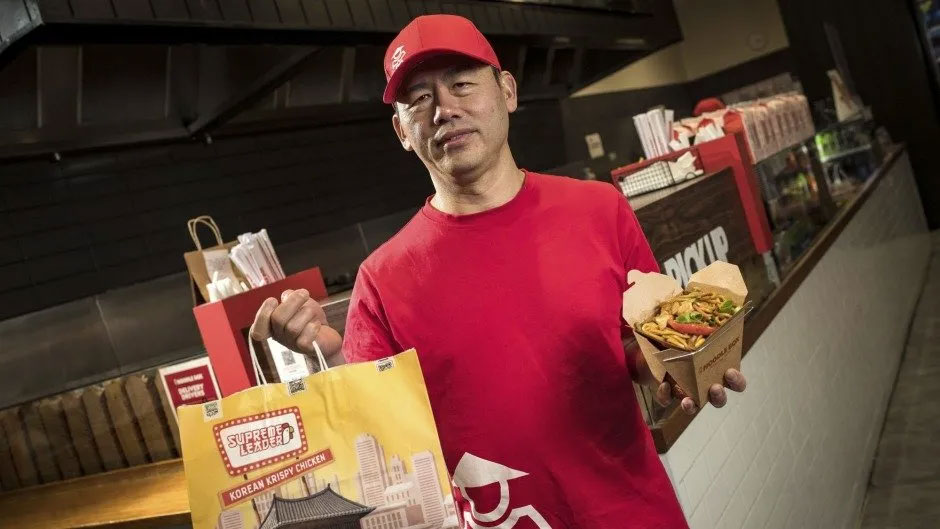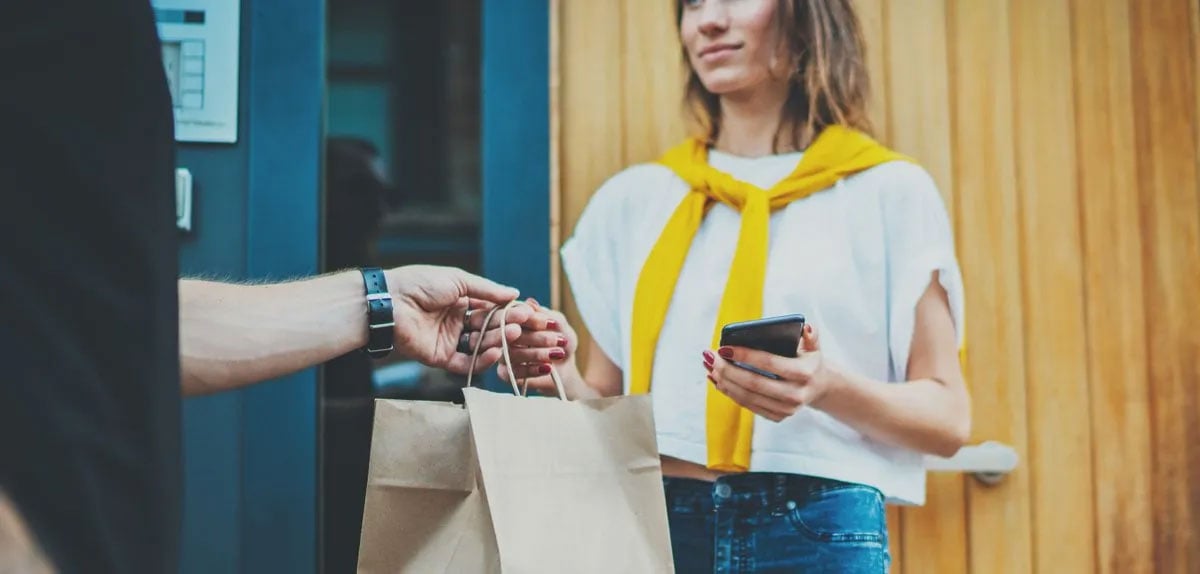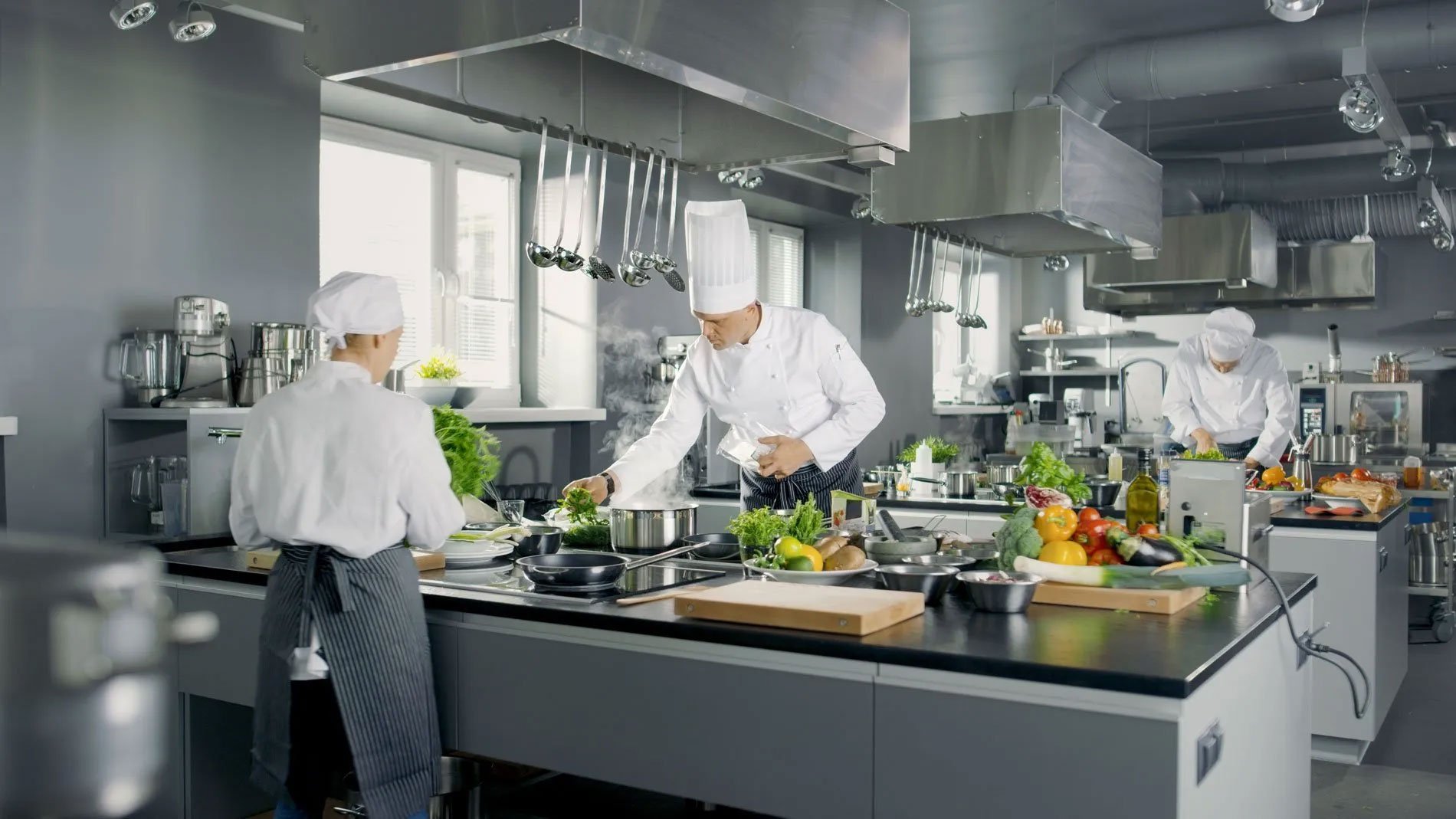Thinking outside the Box
Concept Eight and Redcat partner to streamline operations with a single management portal for virtual and physical brands Concept Eight is the...
5 min read
Louie Scarpari : 11/01/2023 12:58:05 PM

Published Good Food
In a post-pandemic, short-staffed world, where on-demand is the expectation, more restaurants are cooking up concepts to maximise their sales. Virtual brands, ghost kitchens and hybrid restaurants that change identity are among a new class of eateries emerging in Australia.
If it sounds a bit Silicon Valley, that's because it is. The spread of food delivery apps is a critical ingredient in the rise of these businesses, which are set to take off as owners try to outsmart a tough economic climate.
With no expensive fit-out and no front-of-house staff, delivery-only restaurants (also known as virtual restaurants) are a much cheaper proposition for business owners looking for additional revenue.
Existing only online, some virtual venues operate out of ghost kitchens (commercial kitchens without a traditional restaurant attached).
A newer trend is bricks and mortar restaurants using their kitchen to serve a completely different menu for delivery customers. Think of it as a restaurant within a restaurant.
Antonio Van, who runs a Noodle Box franchise in Geelong, also manages three virtual restaurants from the same kitchen, serving Southern-style chicken, Korean fried chicken and meat-free pan-Asian dishes.
Not that anyone eating in Noodle Box would know. Each "restaurant" has a separate menu and identity, and the virtual brands only exist on the internet.
"Virtual brands have added around 25 to 30 per cent to my total sales, which is quite significant," says Van.
Noodle Box franchisor Concept Eight launched virtual brands in 2019 and now has five across Australia. It means the business has 130 physical restaurants, but 310 restaurants taking orders.
The brands allow operators to reach different customers, bring in more revenue and optimise their investment in kitchen equipment, also known as "sweating the asset".
Soul Burger, which has four locations across Sydney, will soon be wrapping plant-based burritos in the same kitchen where it grills its vegan burger patties. Plantas Taqueria, an online-only Mexican restaurant, launches July 21 at Newtown, with three more locations to follow.
Owner Amit Tewari says he's responding to customer demand for plant-based options via delivery, which he says has nearly tripled in revenue compared to pre-COVID.
"This was a way to launch a brand without the fit-out of a whole new store and capital costs that come along with that. We can utilise our existing kitchen," he adds.
Most quick-service restaurants need similar equipment regardless of their menu. All have overheads like rent, labour and utilities. The logic of virtual restaurants is that more menus equals more sales for the same outlay.
"Pre-COVID, this was an interesting idea. During COVID, it was a critical idea," says Lawrence Pelletier of Redcat, which creates online systems that allow a kitchen to handle orders for multiple restaurants.
With rents rising, food costs up and unprecedented staff shortages, virtual restaurants are likely to grow.
The concept has existed since approximately 2017, with Uber Eats claiming in 2019 there were more than 1,000 virtual restaurants on its platform in Australia.
While the Uber Eats declined a request for latest figures, research shows that Australia's food delivery market skyrocketed by 40.2 per cent in 2020. Chef Collective, a local operator of ghost kitchen facilities, says 2025 growth forecasts for home delivery were reached in 2021.
Even out of lockdown, Aussies love home delivery, with convenience the main appeal. 55 per cent of restaurant owners surveyed in April said delivery orders had increased since November 2021, according to a report by Uber Eats, the Restaurant and Catering Association and Mastercard.
"Online brands buy you more virtual real estate," says Omer Siddiq, who runs two Pattysmiths burger franchises in Canberra and also offers Concept Eight's virtual brands. "Your customers are no longer walking down a street or a food court, they're scrolling through Uber Eats."
The more specific a menu is, the easier it is to find on the apps. While a pub menu is a mixed bag of burgers, pizzas and pasta specials to keep the whole family happy, the whole family may not be scrolling a delivery app.
National cafe chain The Coffee Club makes the most of its 250-plus kitchens by trading from breakfast through to dinner with two burger-focused virtual brands, and a third upscale breakfast brand. It has 590 virtual restaurants nationally.
The business started work on these four years ago by launching Burgers With Bite, giving it a significant headstart on eateries performing lockdown pivots.
"Generally across our business, a virtual brand can increase sales five to 20 per cent," says Jarrod Appleby, chief growth officer for The Coffee Club.
In November, it took Burgers With Bite physical, creating a hybrid store in Newcastle that transforms from The Coffee Club to a hip burger bar at night. "The signage will flip, the internal collateral flips, the lighting changes," explains Appleby, who believes it's a world-first. Two more are on the way in NSW.
Vegan restaurants are especially prolific in the virtual world. Concept Eight cheif executive Grant Lee believes there's enormous potential for growth, especially as flexitarianism (occasionally eating meat or fish) takes off.
Mesy Burger, a plant-based Melbourne delivery restaurant, launched a year ago at Chef Collective's North Melbourne ghost kitchen, after lockdowns decimated owner Peter Ong's previous business, which relied on travellers. For Ong, delivery-only meant his business was more resilient if there were more lockdowns.
He also says he needs a third of the staff he required for dine-in, hasn't had to pay for a liquor licence, and has more time to focus on the food.
"We believe that Mesy Burger is a hybrid model. We can always be a dark kitchen, but we can be a dine-in restaurant as well. We've tested the brand on delivery and know it works."
This is a huge selling point for small or first-time entrepreneurs, says Arin Aghazarian, general manager of Chef Collective, which is affiliated with US company Cloud Kitchens and launched in Australia in February 2021.
"A lot of our licensees say that if it wasn't for us, they wouldn't have started a business, because it's really scary," she says.
Even larger businesses might use ghost kitchens to see if a particular suburb will buy the food they're selling, and whether it's worth investing in a bricks and mortar location.
Businesses like Chef Collective and Concept Eight handle most of the operations and marketing of virtual eateries, two factors which can make or break a new delivery restaurant, according to insiders.
Mesy Burger pays Chef Collective a monthly licence fee to use the kitchen, plus utilities and outgoings. Chef Collective takes a 3 per cent cut of sales for tech and other support.
Chef Collective's facility in North Melbourne also comes with food runners, who ferry food from the 20 restaurants using the kitchen to waiting riders and drivers.
Aghazarian says every licensee is running at least two brands from their ghost kitchens in Australia.
A spokesperson from Uber Eats said: "We've seen success stories from restaurant partners that have online sales on Uber Eats where the virtual brand exceeds their primary restaurant."
Where do the Providoors of the world fit in? Most of the restaurants on the premium heat-and-eat platform prepare the food in the same kitchens they use for dine-in. Founder Shane Delia says approximately 10 per cent use separate kitchens, while a small proportion use Providoor's own dark kitchens, which he describes as state-of-the-art.
"If anything it's a better environment: it's controlled, there's good refrigeration space, you've got the best equipment."
New high-end delivery outfit, FIX, launching in Sydney on July 26, will use a kitchen at the rear of its Stix cafe in Hunters Hill to prepare menus designed by chefs including Peter Gilmore of Quay.
While food delivery is now part of life for most Australians, Aghazarian believes it's got room to grow.
"It's very nascent … Sydney, as the most developed market, is not even close to other Asian markets or US markets," she says, adding that Australians have higher standards of quality for food.
Virtual restaurants are still niche but Redcat's Pelletier is confident they will grow.
"People are becoming more aware of the economics in their business and as they become more mature in that, they might see there's extra capacity in [their] kitchen and [they] could get value."
Lee of Concept Eight is clear that virtual is not for everyone, but they have a big role to play in the growth of food delivery.
"If head office comes to me and says we've got a new [virtual brand], I'll snap it up," says Siddiq of Pattysmiths. "I definitely bet on them."
A cheat sheet to online restaurants
Ghost kitchen - Also called a dark kitchen, this is a commercial kitchen facility used by restaurants that only offer food via delivery. Often multiple kitchens operate under one roof.
Virtual restaurant - A delivery-only restaurant that's operating out of a traditional restaurant offering both dine-in and takeaway. The virtual restaurant's branding and menu is not on display; it only exists online.
Commissary kitchens - A more formal term for a ghost kitchen. Can be used by food trucks, caterers and delivery-only restaurants.
Heat-and-eat meals - Favoured by high-end restaurants and made popular by services such as Providoor, the customer does some final cooking at home. Some meals are prepared in ghost kitchens, others are made at the restaurant.

Concept Eight and Redcat partner to streamline operations with a single management portal for virtual and physical brands Concept Eight is the...

We explore how virtual brands and dark kitchens are benefitting franchise hospitality businesses. Imagine running a franchise with 20 locations -...

Time for dinner - and Australians around the country open up a food ordering app, scroll their favourite cuisines and place an online order for...